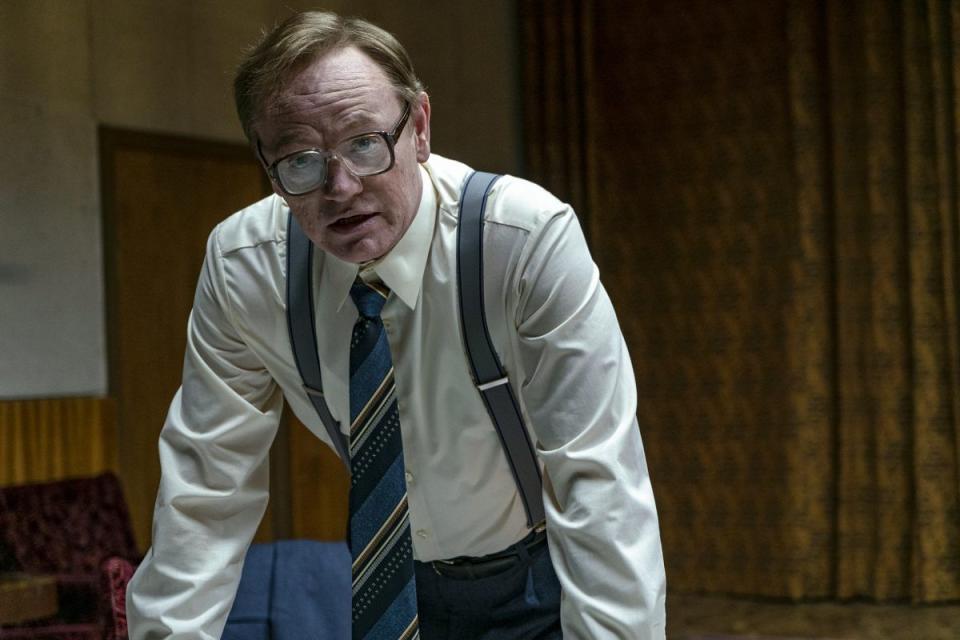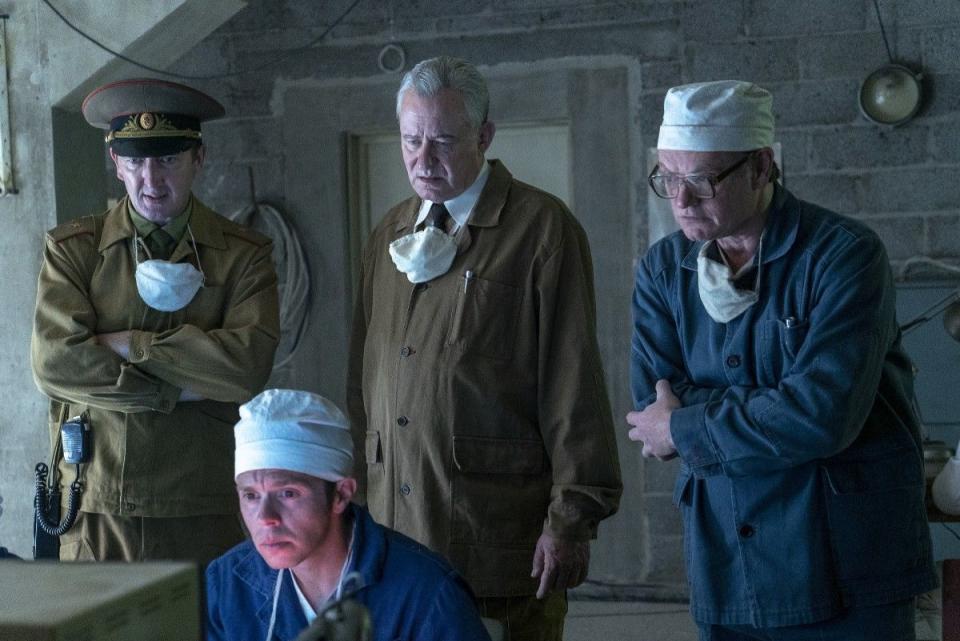'Chernobyl' Star Jared Harris Says Doing Movies Is Like 'Stepping Back In Time'
In an interview with Men's Health earlier this year, Jared Harris revealed that he thinks that television has surpassed movies.
As scientist Valery Legasov, Harris plays the lead role in HBO's hit based-on-a-true-story limited series Chernobyl.
Harris is up for Best Performance by an Actor in a Limited Series or a Motion Picture Made for Television at the Golden Globes.
In the wake of the mammoth success of Game Of Thrones, which wrapped up earlier this year in May, HBO was looking for its next big hit. As it turns out, they had it immediately. Chernobyl debuted a few weeks before Thrones went off the air, and wound up cultivating a critical mass and building an enormous viewership. The series, helmed by a previous comedy writer in Craig Mazin, was nominated for 19 Emmys and now is up for several Golden Globes.
Leading the series was actor Jared Harris, who with his previous roles in Mad Men and The Terror brought a familiarity to the show. Alongside fellow cast mates Stellan Skarsgård and Emily Watson, Harris was the conscious of the show, a viewer companion for every terrifying step of the Chernobyl disaster.
We had the chance to chat with Harris earlier this year, just before Chernobyl's debut. Now, he's landed a nomination for Best Performance by an Actor in a Limited Series or a Motion Picture Made for Television. Harris is up against some stout competition in the category—including big stars like Russell Crowe and Sacha Baron Cohen—but with the massive reception that Chernobyl got, a victory won't be out of the question. Ahead of the January 5th show, we're republishing our feature story with the acclaimed actor below.
HBO has long been one of the loudest proponents of the miniseries format. With limited-run pieces like Band of Brothers, The Pacific, Show Me a Hero, and Sharp Objects making their way to the pay cable giant's airwaves over the last two decades, they've always been at the forefront of a practice that seems to have recently taken the industry by storm.
Their latest miniseries, Chernobyl, takes what those have done, and brings it to new heights. With an engrossing, true-to-life story, big scale effects, and talented actors, the five-part miniseries has been a major hit for HBO—and actor Jared Harris, who plays scientist Valery Legasov on Chernobyl, believes that the television format is where storytelling best fits right now.
"It certainly used to be the idea that movies were a higher-end product, but nowadays, they're spending as much money per episode on television that they are on feature films," Harris said in an interview with Men's Health. "And the material is as good, if not better. The writing is better, the stories are more challenging, the characters, they're taking bigger risks with. So in some ways, it's kind of dull to go and do feature films, because it's like stepping back in time."
While he points out that he's only really appeared on one true series—his Emmy-nominated role in Mad Men—Harris has appeared in a few other major television projects before his lead role in Chernobyl, including Netflix's The Crown, recurring roles on Sci-fi shows Fringe and The Expanse, and a major role on AMC's anthology series The Terror, which aired last year and just made its way onto Hulu.

Outside of those, though, Harris has primarily built his 30-year career on appearing in movies: he's shown up in everything from Steven Spielberg's Lincoln and David Fincher's The Curious Case of Benjamin Button to appearing alongside Robert Downey Jr. as the villain, Professor Moriarty, in Sherlock Holmes: A Game of Shadows,and alongside Adam Sandler, as a smarmy news reporter, in Mr. Deeds.
That experience gives weight to Harris' perspective, and it's clear that he's been seeing more interesting options on the television side, and not necessarily in the world—or, at a more grand scale, format, of cinema.
"It's a sort of model of storytelling that hasn't quite caught up with what audiences are responding to," he said. "They're delivering entertainment value through special effects, but not necessarily through complicated characters, or taking risks with narrative."
Within that larger subset of TV, of course, there comes the distinction of something that drops all at once—the Netflix model, we can call it—versus what HBO does, releasing one episode per week. While the Netflix model might allow for quicker consumption, many, including Harris, believe that what HBO does brings the viewer in on the story. "If you have to wait, then you become part of the story," he said. "But if you can have all your questions answered, you go, Let's just watch the next one. Let's watch the next and next one. I don't think it grips you in the same way."

In a way, the idea of having to sustain a plot in viewers' minds over the course of five plus weeks makes it a harder task for the writers, than a movie, where everything you need to know has been portrayed over the last two hours, or a Netflix series, where everything you need to know comes at whatever (usually fast) pace a viewer chooses.
With HBO and other one-per-week paces, the writers also have the responsibility to make sure that viewers are totally aware of what callbacks their making, what references what, and to maintain a natural flow while still balancing their story in a manner that works and makes sense on-screen.
Harris knows that sometimes writers have to play around with things to ensure that the larger plot stays on track, and makes sense. As a result, he says, certain ways of ingesting these series can be more enjoyable than others.
"If you watch five episodes back-to-back of Stranger Things, you're going to spot plot holes very quickly," he says. "Whereas if you have to wait for five weeks... your memory of specific lines of dialogue or certain little cheats that they have to do to get around a problem, they're not there, so your experience of it is actually better."
You Might Also Like

